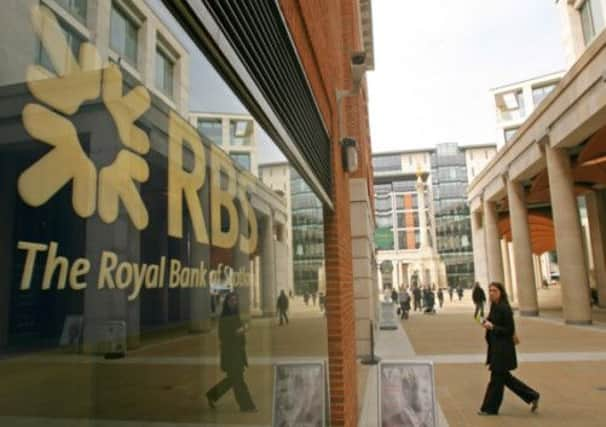Leaders: McEwan has work cut out on RBS rehab


Mr McEwan issued a statement about the foul-up yesterday that read as if it had been written through gritted teeth. He bluntly and candidly blamed the problems on “decades of underinvestment” in the bank’s IT systems. It was hardly a vote of confidence in RBS, which he has taken over at a crucial juncture in its history.
After its catastrophic takeovers, failure of due diligence, rate-fixing conspiracies and, now, carelessness about the very basic service it offers to individual customers, it is almost as if RBS has been an anti-model for a bank, seeming to forget every care of duty with which it had been entrusted. Truly, the bank’s recent history has been something to marvel at, and not for any positive reasons.
Advertisement
Hide AdAdvertisement
Hide AdIt is now perhaps evident why the UK government does not feel it is yet time to put RBS – currently 80 per cent owned by the taxpayer – back into the private sector. Clearly, the detoxification of this brand has some way to go before individual and institutional investors could be confident of taking a worthwhile stake.
Mr McEwan – for whom it is impossible not to feel a degree of sympathy – has promised a reorientation of the RBS culture, focusing attention unrelentingly on customer service in retail banking, as RBS tries to regain a little of its lost lustre.
This process, he says, will shift fully into gear in the new year. This is welcome news. But one wonders what other systemic institutional failings threaten the rehabilitation of this once-lauded Scottish institution.
Some inside RBS have a euphemism for problems it has been experiencing of late, such as this week’s IT collapse. They are, apparently, “heritage issues”. This makes them sound Victorian or at the very least Edwardian, safely consigned to history.
The reality is that the mantraps into which this chief executive and his predecessor have placed their impeccably shod feet were laid relatively recently, in the culture of hubris presided over by former RBS boss Fred Goodwin, when he was acting unchecked as the uncrowned king of Scotland. These “heritage” issues are barely a decade old.
Regardless, the current RBS management has little option but to draw a line under the past. Mr McEwan deserves support as he attempts to press forward with the necessary cultural and structural reforms that could finally create a bank that meets customer needs and national economic priorities, as well as narrow shareholder interest. But, as is evident, the RBS boss has a job on his hands and not much time to be seen to be doing it.
Co-operation vital at Grangemouth
It is only now, with some time having past and all concerned having had a chance to reflect, that we can fully appreciate what a close shave the Grangemouth saga was for Scotland’s industrial base.
With so much depending on the whim of one man – Ineos’s all-powerful boss Jim Ratcliffe, who has a controlling stake in the company – the crisis that engulfed the plant in October could so easily have had a less happy ending.
Advertisement
Hide AdAdvertisement
Hide AdThankfully, good sense prevailed on both the management and union sides, with much government intervention, and both the oil refinery and petrochemical plant were saved. Yesterday, Ineos outlined its plans for a multi-million-pound retooling of the site that will allow it to reconfigure its business to take account of the shale-gas revolution in the United States and elsewhere.
Shale gas has transformed the energy industry, and forced a rethink of national and corporate assumptions about the world’s reliance on traditional oil and gas from the Middle East and offshore. For Scotland to be able to play a role – and to reap the rewards in work, wealth and expertise – is most welcome. It is gratifying to see the plant planning for the long term.
We would do well, however, to remember how close Scotland came this year to scuppering its chances of having any significant stake in the shale-gas revolution.
For this country to take full advantage of this second chance, both the management and unions at Grangemouth have to be able to find a constructive and co-operative working relationship that ensures we do not have again to countenance the loss of such an iconic part of Scottish industry.